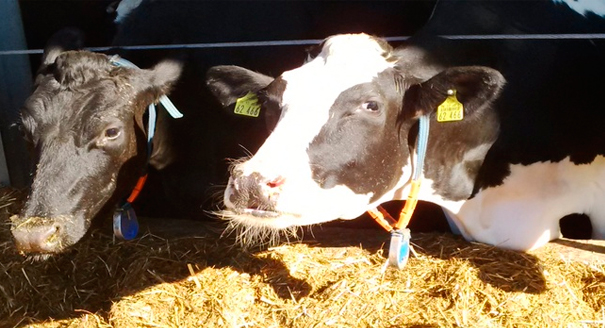Making Georgia’s dairy sector more efficient and attractive for investors
The European Bank for Reconstruction and Development (EBRD) and the Food and Agriculture Organization of the United Nations (FAO) are joining forces to support Georgia’s dairy sector. The initiative is designed to build capacity in the sector to make it more efficient and attractive for investors. The ultimate objective is improving quality and safety of Georgian dairy products.
Georgia’s dairy farmers face huge challenges to modernise and increase production – not least following the signing of a free trade agreement with Europe. The EBRD, and the Food and Agriculture Organisation of the United Nations are on board to lend a hand.
The country’s first National Dairy Congress, co-organised by the EBRD and FAO, in Georgia’s capital Tbilisi attracted over 100 participants, including commercial dairy farmers, processors, equipment suppliers, industry experts and representatives from the Georgian government. The event served to promote Georgia’s commercial dairy farming, and share knowledge about state-of-the-art technologies and food safety practices. The latter is particularly important for the country, which in 2014 joined the Deep and Comprehensive Free Trade Area with the European Union and is working to align its food safety legislation with that of the European Union.
According to a study commissioned by FAO and the EBRD, Georgia’s dairy sector is dominated by small producers using obsolete technologies, and with very low productivity and poor hygiene standards. The study also suggests that simple improvements, such as better feed and fodder production, improved animal health, welfare and farm management as well as hygienic milk-handling can improve the productivity of dairy milk farming by up to 35 per cent. The Congress will set up a platform for sharing this information with all market participants.
“Georgia has an excellent investment climate, ideal agro-climatic conditions for dairy farming and strong demand for milk, cheese and other dairy products,” said Victoria Zinchuk, Associate Director of the Agribusiness team at the EBRD.
“Only about 5 per cent of the milk consumed in Georgia is sold to commercial dairy processors,” said Andriy Yarmak, a FAO agricultural economist. “In the European Union, Georgia’s most important trading partner, it’s nearly 100 per cent.”
“Improvements in the safety and quality of Georgian dairy products would encourage new investments in the sector. This, in turn, would lead to creating new jobs and improving livelihoods in the long term,” said Mamuka Meskhi, Assistant Representative of FAO in Georgia
After the Congress FAO and the EBRD plan to launch a modular training programme for Georgia’s commercial dairy farmers and will publish a practical manual on modern dairy farming, to be used by stakeholders and educational institutions.
The EBRD is a leading institutional investor in Georgia. Since the start of its operations in the country, the EBRD has invested over €2.66 billion in 188 projects in the country’s financial, corporate, infrastructure and energy sectors, with 88 per cent of these investments being in the private sector.
The FAO mandate in Georgia is to support national efforts to promote food security and sustainable development. FAO priorities in Georgia reflect the objectives and priorities of the Georgian government related to agricultural development. In essence, FAO assists the government in creating and implementing an institutional, legal and regulatory environment in Georgia that meets the strategic objectives for agricultural and rural development.


